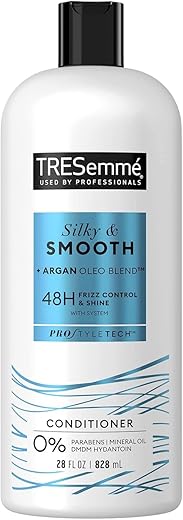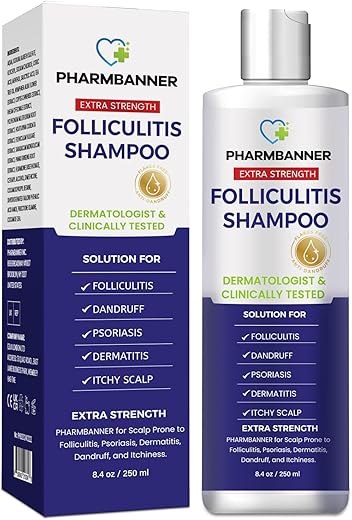
Are there any dietary restrictions while taking collagen supplements for hair growth?
Are you tired of dull and lifeless hair? Do you dream of having luscious locks that turn heads wherever you go? If so, then you’ve probably heard of collagen supplements and their potential benefits for hair growth. But before you dive headfirst into the world of collagen, it’s important to understand any dietary restrictions that may come along with it. In this blog post, we’ll take a closer look at collagen supplements, their role in promoting hair growth, and whether or not you need to make any changes to your diet while taking them. So, grab a cup of tea and get ready to learn all about the secrets to healthy, vibrant hair.
Boost Your Hair Growth with Collagen Supplements



Understanding Collagen Supplements
Collagen supplements have gained popularity in recent years for their potential to improve hair growth and overall hair health. In this section, we will delve into what collagen supplements are, how they work, and the different types available in the market. Let’s explore the benefits and considerations of incorporating collagen supplements into your hair care routine.



What are Collagen Supplements?
Collagen is the most abundant protein in our bodies and plays a crucial role in maintaining the structure and strength of our hair, skin, nails, and connective tissues. However, as we age, our natural collagen production decreases, leading to signs of aging such as thinning hair, wrinkles, and brittle nails.
Collagen supplements are designed to replenish the body’s collagen levels, promoting healthy hair growth and addressing the effects of aging. These supplements usually come in the form of capsules, tablets, powders, or drinks, making them convenient and easy to incorporate into your daily routine.
How do Collagen Supplements Work for Hair Growth?
Collagen supplements work by providing the body with the necessary amino acids that are essential for building and maintaining healthy hair follicles. These amino acids, such as glycine, proline, and hydroxyproline, are the building blocks of collagen and are crucial for the synthesis of new hair proteins.
When you consume collagen supplements, the amino acids are absorbed into the bloodstream and reach the hair follicles, where they promote the production of new collagen. This helps strengthen the hair shaft, improve elasticity, and enhance overall hair growth.
Types of Collagen Supplements
There are various types of collagen supplements available in the market, each derived from different sources and offering unique benefits. Here are some common types of collagen supplements:
- Bovine Collagen: Derived from cows, bovine collagen is rich in type I and type III collagen, which are essential for hair growth and skin health.
- Marine Collagen: Sourced from fish, marine collagen is known for its high bioavailability and absorption rate. It contains type I collagen, which is beneficial for hair growth, skin elasticity, and nail health.
Benefits of Collagen Supplements for Hair Health
Incorporating collagen supplements into your hair care routine can offer several benefits, including:
- Stimulating hair follicles and promoting healthy hair growth.
- Strengthening the hair shaft, reducing breakage, and improving hair texture.
- Enhancing hair elasticity and preventing hair loss.
- Improving the overall health and appearance of the hair, making it shinier and more vibrant.
Considerations When Choosing Collagen Supplements
When selecting collagen supplements for hair growth, there are a few factors to consider:
- Source: Choose a collagen supplement sourced from reputable and sustainable sources, ensuring quality and effectiveness.
- Type of Collagen: Consider the specific benefits of each type of collagen to address your hair concerns effectively.
- Dosage and Form: Follow the recommended dosage instructions provided by the manufacturer and choose a form that suits your preference and lifestyle.
- Additional Ingredients: Some collagen supplements may include other beneficial ingredients like vitamins, antioxidants, or minerals for enhanced hair health.
Factors to Consider
Collagen supplements have gained popularity in recent years as a potential solution for promoting hair growth. However, before incorporating these supplements into your routine, it is important to consider a few factors that can influence their effectiveness. In this blog section, we will discuss the key factors to keep in mind when choosing and consuming collagen supplements for hair growth.


1. Type of Collagen
Collagen supplements are available in various types, each offering specific benefits. For hair growth, Type I and Type III collagens are the most commonly recommended. These types of collagen provide essential amino acids that support the production of hair proteins, thereby improving hair strength and growth.
2. Dietary Restrictions
If you follow a specific dietary regimen, such as a vegan or gluten-free diet, it is crucial to ensure that the collagen supplements align with your restrictions. Fortunately, there are collagen supplements available that are specifically formulated to cater to these dietary preferences. Look for vegan collagen alternatives derived from plant sources or gluten-free options to ensure compatibility with your diet.
3. Bioavailability and Absorption
Bioavailability refers to the ability of your body to absorb and utilize the collagen supplements effectively. Before making a purchase, consider the bioavailability of the product. Look for collagen supplements that are hydrolyzed, as this process breaks down collagen proteins into smaller peptides, making them easier for your body to absorb. Higher bioavailability ensures that your body can make the most out of the collagen you consume, maximizing its potential for hair growth.
4. Recommended Dosage
To achieve optimal results, it is essential to follow the recommended dosage of collagen supplements. The dosage may vary depending on the brand and product, so carefully read the instructions provided. Taking collagen supplements consistently and in the appropriate amounts can help support hair growth over time.
5. Additional Ingredients
Collagen supplements often contain other ingredients that can enhance their effectiveness for hair growth. Look for supplements that include vitamins and minerals like biotin, vitamin C, and zinc. These nutrients play a vital role in promoting healthy hair and can work synergistically with collagen to support hair growth.
6. Quality and Reputation of the Brand
When selecting collagen supplements, it is crucial to choose products from reputable brands that prioritize quality and safety. Look for brands that undergo rigorous testing and have positive customer reviews. Additionally, consider checking for third-party certifications to ensure the supplements meet industry standards.
7. Price and Value
Collagen supplements can vary in price range, so it is essential to consider the value you are getting for your investment. Compare the price per serving and evaluate the overall benefits provided by the product. Sometimes, paying a little more for a high-quality supplement can be worth it in terms of the results you may achieve.
In conclusion, when choosing collagen supplements for hair growth, it is crucial to consider factors such as the type of collagen, dietary restrictions, bioavailability, recommended dosage, additional ingredients, brand reputation, and price. By carefully evaluating these factors, you can make an informed decision and select the best collagen supplement that aligns with your needs and goals for promoting hair growth.
Key Points:
- Choose collagen supplements with Type I and Type III collagens for hair growth.
- Consider dietary restrictions and opt for vegan or gluten-free collagen alternatives if necessary.
- Look for hydrolyzed collagen for improved bioavailability and absorption.
- Follow the recommended dosage for optimal results.
- Check for additional ingredients like biotin, vitamin C, and zinc to enhance hair growth support.
- Select reputable brands that prioritize quality and safety.
- Evaluate the price and value of the collagen supplement before making a purchase.
Potential Dietary Restrictions
When considering taking collagen supplements for hair growth, it is important to be aware of any potential dietary restrictions that may impact their suitability for you. In this section, we will explore various factors such as medications, allergies, and intolerances that could affect your decision to incorporate collagen supplements into your hair care routine.



Medication Interactions
Before incorporating collagen supplements into your daily regimen, it is crucial to consult with your healthcare provider, especially if you are taking any medications. Certain medications may interact with collagen supplements, potentially affecting their efficacy or causing adverse reactions. Some medications that may have interactions with collagen include:
- Blood thinners: Collagen supplements may have blood-thinning properties, and when combined with blood-thinning medications, it can increase the risk of bleeding or bruising. It is essential to discuss this potential interaction with your healthcare provider.
- Immunosuppressants: People taking immunosuppressant medications, such as those prescribed after organ transplantation, should exercise caution when considering collagen supplements. Collagen supplements may boost the immune system, which can interfere with the intended effects of immunosuppressants.
- Hormonal medications: Collagen supplements contain amino acids that can affect the hormonal balance in the body. If you are taking hormonal medications, such as birth control pills or hormone replacement therapy, it is advisable to consult with your healthcare provider to ensure there are no interactions.
Allergies and Intolerances
If you have known allergies or intolerances, it is crucial to carefully examine the ingredients in collagen supplements to avoid any adverse reactions. Some collagen supplements may contain common allergens such as:
- Shellfish: Collagen derived from shellfish, such as shrimp or crab, may trigger allergic reactions in individuals who are allergic or sensitive to shellfish.
- Fish: Individuals with fish allergies should be cautious when choosing collagen supplements, as some varieties may contain fish-derived collagen.
- Eggs: Collagen supplements may also contain egg proteins, making them unsuitable for individuals with egg allergies.
- Gluten: Some collagen supplements may contain trace amounts of gluten, which can be problematic for individuals with celiac disease or gluten sensitivity. Opting for gluten-free collagen supplements is advisable in such cases.
Intolerances
In addition to allergies, certain individuals may have specific dietary intolerances that should be taken into account when considering collagen supplements. These include:
- Lactose intolerance: Some collagen supplements may contain lactose, a milk sugar that can cause digestive discomfort in individuals with lactose intolerance. Opting for lactose-free collagen supplements is recommended for those with this intolerance.
- FODMAP intolerance: FODMAPs are specific types of carbohydrates that can trigger digestive symptoms in individuals with irritable bowel syndrome (IBS) or other gastrointestinal disorders. Collagen supplements that are low in FODMAPs can be a suitable option for individuals with FODMAP intolerance.
Important Considerations
To make an informed decision about incorporating collagen supplements into your hair growth routine, consider the following key points:
- Consult with your healthcare provider: Before starting any new supplement, especially if you have underlying health conditions or take medications, it is crucial to seek guidance from a healthcare professional.
- Read labels carefully: Thoroughly examine the ingredient list of collagen supplements to ensure they do not contain any allergens or ingredients that you are intolerant to.
- Choose reputable brands: Opt for collagen supplements from reputable companies that prioritize quality and safety. Look for third-party testing and certifications to ensure the product is reliable.
- Start with a small dose: If you are unsure about any potential dietary restrictions or how your body will react to collagen supplements, start with a smaller dose and monitor your body’s response before increasing the dosage.
By considering these potential dietary restrictions, you can make an informed decision about whether collagen supplements are suitable for your hair growth journey. Remember, it is always best to consult with your healthcare provider before making any significant changes to your dietary or supplement routine.
Best Practices and Recommendations
When it comes to achieving healthy and vibrant hair, incorporating collagen supplements into your routine can be a game-changer. Collagen, a crucial protein found naturally in our bodies, plays a vital role in maintaining the health of our hair, skin, and nails. In this blog section, we will provide you with practical tips and recommendations on how to effectively incorporate collagen supplements into your hair growth regimen.



1. Finding the Right Collagen Supplement
Choosing the right collagen supplement is essential to ensure maximum benefits for your hair. Here are some key factors to consider when selecting a collagen supplement:
- Type of Collagen: Look for supplements that contain collagen types I and III, as these are most beneficial for hair health.
- Source of Collagen: Opt for collagen supplements derived from high-quality sources such as bovine or marine collagen.
- Form of Supplement: Collagen supplements are available in various forms, including powders, capsules, and liquids. Choose the form that suits your preferences and lifestyle.
- Dosage: Check the recommended dosage on the product label and adjust it according to your specific needs.
2. Incorporating Collagen into Your Diet
To maximize the benefits of collagen for hair growth, it is crucial to incorporate it into your daily diet. Here are some easy ways to add collagen-rich foods to your meals:
- Bone Broth: Sip on a warm cup of homemade bone broth, which is packed with collagen and other essential nutrients.
- Seafood: Include collagen-rich seafood options like salmon, tuna, and shellfish in your diet.
- Citrus Fruits: Enhance collagen absorption by consuming vitamin C-rich foods like oranges, strawberries, and kiwi alongside collagen supplements.
- Leafy Greens: Incorporate leafy greens such as spinach, kale, and broccoli into your meals to provide your body with important vitamins and minerals that support collagen production.
3. Navigating Dietary Restrictions
For individuals with dietary restrictions, incorporating collagen supplements can be a bit challenging. However, there are alternative sources of collagen that can be suitable for specific dietary needs:
- Vegan Collagen Alternatives: Look for plant-based collagen supplements made from ingredients like algae or amino acids derived from plants. These alternatives provide similar benefits to animal-based collagen.
- Gelatin Supplements: Gelatin, derived from animal sources, can be a suitable alternative for individuals who do not consume collagen directly. Gelatin is rich in collagen and can be used in various recipes and cooking applications.
- Consult a Healthcare Professional: If you have specific dietary restrictions or concerns, it is always advisable to consult a healthcare professional who can provide personalized recommendations.
4. Combining Collagen with Other Hair-Nourishing Practices
To enhance the effectiveness of collagen supplements, consider incorporating other hair-nourishing practices into your routine. Here are some tips to complement your collagen supplementation:
- Maintain a Balanced Diet: Ensure you are consuming a well-rounded diet with sufficient nutrients, including vitamins and minerals that support hair health.
- Stay Hydrated: Proper hydration is essential for healthy hair growth. Drink an adequate amount of water each day to keep your hair and scalp hydrated.
- Practice Scalp Care: Incorporate scalp massages and gentle exfoliation into your hair care routine to improve blood circulation and promote hair growth.
- Protect Your Hair: Minimize heat styling and protect your hair from environmental stressors by using heat protectants and wearing protective hairstyles.
By following these best practices and recommendations, you can effectively incorporate collagen supplements into your hair growth regimen and reap the numerous benefits they offer. Remember, consistency is key, so make collagen supplementation a part of your daily routine to achieve the best results.
The Verdict: Collagen supplements and dietary restrictions for promoting hair growth
In conclusion, it is crucial to consider any dietary restrictions when incorporating collagen supplements for hair growth. Seeking guidance from a healthcare professional or nutritionist is recommended to ensure compatibility with individual dietary needs.

Hello! I’m Ava Wilson, a passionate advocate for healthy, beautiful hair. With years of experience in the hairstyling industry and a deep-rooted love for all things hair, I’ve made it my mission to share valuable insights and expert tips on nurturing and styling locks.





